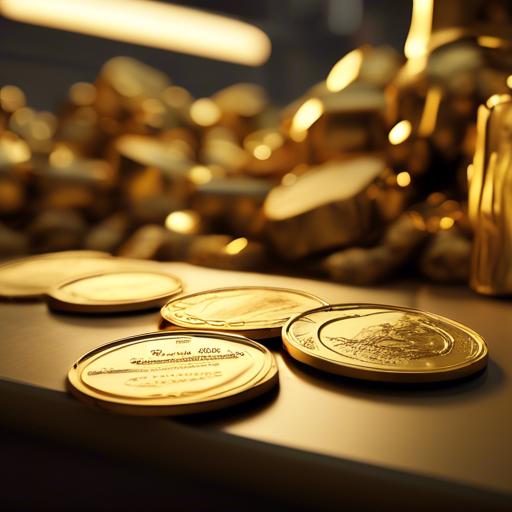Have you ever wondered if Olympic gold medals are actually made of real gold? Well, the answer might surprise you. Despite their prestigious appearance,it turns out that not all gold medals are 100% pure gold.Dive into this article to uncover the truth behind the shiny facade of these coveted awards.
Are Olympic Gold Medals Actually Made of Real Gold?
Many people may assume that Olympic gold medals are made entirely of real gold, but the truth might surprise you. In fact, Olympic gold medals are not pure gold, but rather a combination of different metals.
Here is a breakdown of the composition of an Olympic gold medal:
- Approximately 93% silver
- A small amount of copper
- A thin coating of real gold
The Composition of Olympic Gold Medals Examined
Have you ever wondered if Olympic gold medals are actually made of real gold? Well, the answer might surprise you. While the name suggests that these prestigious awards are crafted entirely from the precious metal, the reality is a bit different. In fact, Olympic gold medals are composed mostly of silver, with only a thin layer of actual gold plating covering the surface.
So, just how much gold is in an Olympic gold medal? On average, Olympic gold medals are made up of about 92.5% silver and only 1.34% gold. the rest of the composition is typically copper, which provides the medal with its distinctive golden hue. Despite the minimal amount of gold used in the manufacturing process, Olympic gold medals hold immense symbolic value and are highly coveted by athletes around the world.
Insights into the Value and Authenticity of Gold Medals
When it comes to gold medals, many people wonder if they are actually made of real gold. The truth is, not all gold medals are pure gold. In fact, most Olympic gold medals are made of silver and then plated with about 6 grams of gold. This not only makes the medals more durable, but also helps to keep costs down.
While the value of a gold medal may vary depending on the current price of gold, the sentiment and prestige that comes with winning one is priceless. athletes work tirelessly for years to achieve their goal of standing on the podium and receiving a gold medal, regardless of its actual gold content. At the end of the day, what matters most is the hard work, dedication, and determination that went into earning that coveted piece of hardware. As they say,it’s not about the value of the gold,but the heart of the champion.
Recommendations for Verifying the Purity of Gold Medals
When it comes to verifying the purity of gold medals, there are several recommendations to keep in mind. One way to ensure that a gold medal is real gold is to look for specific markings on the medal itself. These markings typically indicate the purity of the gold, such as “24K” for pure gold or “18K” for 18 karat gold.
Another way to verify the purity of a gold medal is to perform a series of tests, including the magnet test, the acid test, and the density test. These tests can help determine whether the medal is made of real gold or if it has been mixed with other metals.It’s always best to consult with a professional jeweler or appraiser to confirm the authenticity of a gold medal before making any purchases.
Q&A
Q: Is a gold medal real gold?
A: Yes, most gold medals awarded at major international competitions are typically made of real gold.Q: How pure is the gold used in a gold medal?
A: Gold medals are usually made of at least 92.5% pure gold, although some may be even higher in purity.
Q: Are there any exceptions to gold medals being made of real gold?
A: Yes,there are some competitions that award gold-plated medals or medals made of other materials to reduce costs.
Q: How much is a gold medal worth in terms of its gold content?
A: the value of a gold medal depends on the current market price of gold, but it is typically worth several hundred dollars.
Q: Can athletes keep their gold medals?
A: Yes, athletes are typically allowed to keep their gold medals as a symbol of their achievement. however, some competitions may require the medals to be returned after a certain period of time.
Closing Remarks
while gold medals may not always be made entirely of pure gold, they still hold a special value in the world of sports and competition. So, next time you see an athlete proudly wearing their gold medal, remember that it’s not just the metal that matters, but the hard work and dedication that went into earning it. Stay tuned for more intriguing news and updates on all things gold!


